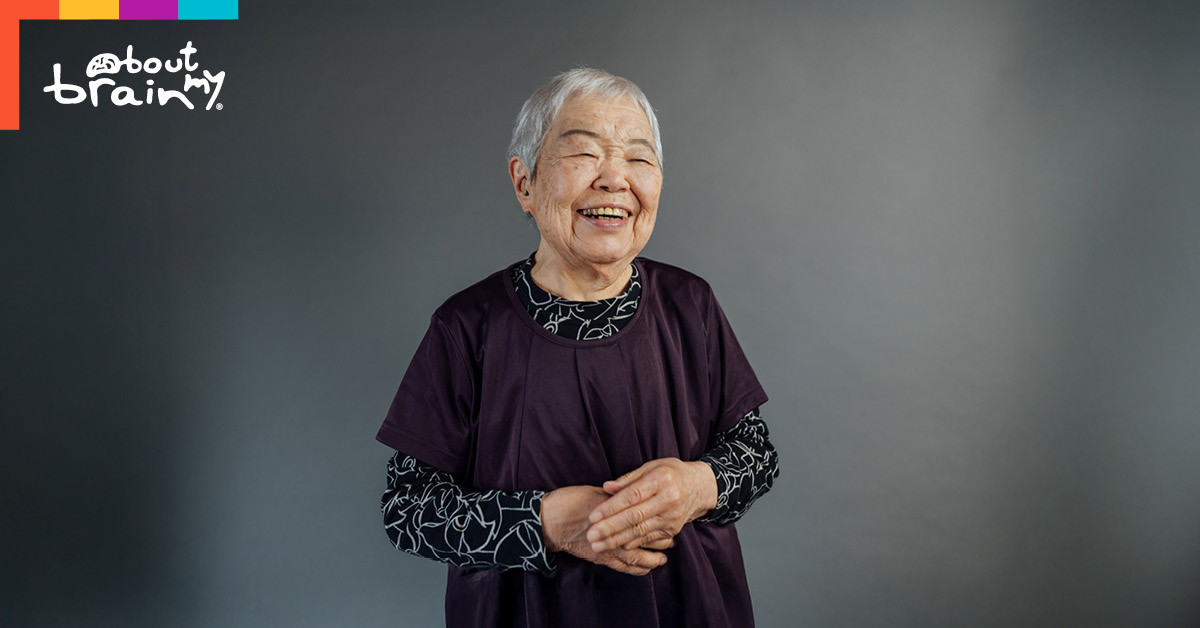
Feng Po Po
Chinese Goddess of the cycle of the wind, storms and transformation.

- Cards
- Goddess Oracle Deck
- Feng Po Po
What Does Feng Po Po Represent in Mythology?
Goddess Feng Po Po, also known as "Madame Wind," holds significant sway over storms and moisture as the deity of wind in Chinese mythology. Depicted as an old and wrinkled crone, she commands the winds from atop a tiger, symbolizing courage and bravery. This representation signifies her vital role in Chinese mythology.
The tiger, associated with the autumnal season and the Crone stage of life, further links this majestic creature to the goddess. Feng Po Po is said to replace or become the new human form of Feng Bo, the male representation of Fei Lian, the wind god. With her transformative powers over the winds and her depiction as a crone atop a tiger, Feng Po Po represents the formidable forces of nature and the wisdom that accompanies the cycle of life.
Prefer to listen to this article?
Check out our podcast!
Words of Wisdom
Embrace the winds of change, for they carry the seeds of transformation.
Newsletter
Keep reading ↓
The Elemental Enchantress: Exploring the Archetypal Traits of Goddess Feng Po Po
Goddess Feng Po Po, the embodiment of wind in Chinese mythology, encompasses archetypal traits that resonate deeply with the human psyche. She embodies the power of change, movement, and adaptability. Like the wind, she is unpredictable yet graceful, capable of both gentle breezes and mighty storms.
Her archetype symbolizes freedom, exploration, and the ability to traverse boundaries effortlessly. She invites us to embrace change, let go of stagnation, and ride the winds of transformation with courage and resilience. The archetypal traits of Goddess Feng Po Po inspire us to harness our inner strength, navigate life's challenges with flexibility, and embrace the ever-changing nature of our own personal journey.
Keep reading ↓
Supporting content

Flag Wall Art
Buy Now
Tiger's Roar: Courage and Strength in Feng Po Po's Symbolism
Goddess Feng Po Po, the deity of wind in Chinese mythology, is associated with various symbols, animals, plants, and artifacts. The tiger holds significant symbolism in connection with Feng Po Po, representing courage and bravery. Often depicted riding on the back of a tiger, she embodies the strength and power of the winds she commands. In addition, the tiger symbolizes the autumnal season and the Crone stage of life, further linking it to the goddess.
As for plants, plum blossoms are often associated with Feng Po Po, representing resilience and beauty amidst harsh conditions. These delicate flowers bloom during winter, symbolizing the transformative power of the wind to bring life and renewal even in challenging times. In terms of artifacts, a traditional item associated with Feng Po Po is the wind chime. These melodic instruments are believed to ward off negative energy while inviting harmony and auspicious winds. The tinkling sounds produced by wind chimes are a gentle reminder of the winds of change and the transformative energy carried by Feng Po Po.
Keep reading ↓
Supporting content

Throw Blanket
Buy Now
- Goddesses ↓
- See All
- Aine
- Amalur
- Anahita
- Anat
- Aphrodite
- Arnarquagssaq
- Astarte
- Atargatis
- Brigid
- Cerridwen
- Coatlicue
- Corn Mother
- Dewi Danu
- Diana
- Durga
- Ezili
- Feng Po Po
- Hina
- Hine-Nui-Te-Pō
- Isis
- Lemanja
- Ixchel
- Jaci
- Konohanasakuya
- Laka
- Lilith
- Mae Phosop
- Mama Quilla
- Mami Wata
- Mẫu Thượng Ngàn
- Mawu
- Mbaba Mwana Waresa
- Mielikki
- Mokosh
- Nana Buluku
- Nanshe
- Neang Neak
- Nisaba
- Nuit
- Oshun
- Oya
- Pachamama
- Pele
- Şahmeran
- Saraswati
- Sekhmet
- Sina-Uli
- Skadi
- Taema & Tilafaiga
- Tanit
- Thesan
- Tiamat
- Ungnyeo
- Vairaumati
- Wairaka
- Wawalag Sisters
- Yemoja
- White Buffalo Calf Woman
- Yhi
- Zonget
Tapping into the Power of the Feng Po Po Archetype
Strategy 1:
Embrace the Winds of Change
Just as Feng Po Po commands the winds, embrace the winds of change in your own life. Instead of resisting or fearing change, see it as an opportunity for growth and transformation. Practice adaptability by being open to new ideas, experiences, and perspectives. Embrace the concept of wu-wei, or effortless action, by going with the flow of life and allowing the winds of change to guide you towards new possibilities.
Strategy 2:
Embrace the Law of Conservation
Reflect on the principles of energy conservation and apply them to your personal transformation. Recognize that energy is neither created nor destroyed; it simply transforms from one form to another. Consider how you can redirect and channel your energy towards positive growth and self-improvement. Identify activities that energize and nourish you, and consciously let go of energy-draining patterns or negative influences. By aligning with the principle of conservation, you can cultivate a sustainable and balanced approach to personal transformation.
Strategy 3:
Harmonize Yin and Yang Energies
Chinese philosophy recognizes the importance of balancing Yin and Yang energies for overall well-being. Yin represents the feminine, receptive, and nurturing aspects, while Yang symbolizes the masculine, active, and transformative qualities. Explore practices such as acupuncture, herbal medicine, or dietary adjustments to restore the balance between Yin and Yang within your body. Pay attention to the interplay between rest and action, receptivity and assertiveness, and find ways to harmonize these energies in your life. By embracing the principles of Yin and Yang, you can foster a sense of equilibrium and support your personal transformation.
Remember, personal transformation is a unique journey, and these strategies can guide you in your pursuit of self-discovery, empowerment, and growth. Adapt them to suit your individual needs, and embrace the transformative power within you.
Keep reading ↓
Threads of Wisdom: Embracing Chinese Traditions and Divine Inspiration
In the celestial realm of Chinese mythology, the goddess Feng Po Po embodied the power of the wind. Inspired by ancient Chinese traditions, her journey to the mortal realm was not merely an adventure but a sacred mission to bring harmony and transformation. With her flowing robes, she symbolized the flowing nature of Qi energy, guiding the winds with grace and purpose.
As Feng Po Po descended from the heavens, she brought with her the teachings of Feng Shui, the art of harmonizing energies in the physical world. With each step she took, the surrounding landscape shifted, aligning with the principles of balance and auspiciousness. Her presence brought a sense of tranquillity and vitality to the land as if nature itself awakened to her touch.
In her travels, Feng Po Po encountered a humble village nestled amidst lush mountains. There, she discovered a young weaver named Li Mei, who possessed a deep connection to nature and the spirits that dwelled within it. Sensing her innate talent, Feng Po Po shared ancient knowledge of the Five Elements and their significance in life and creativity.
Guided by Feng Po Po's wisdom, Li Mei wove tapestries infused with the essence of the natural world. She embraced the symbolism of the phoenix, representing rebirth and resilience, and incorporated vibrant colours that mirrored the changing seasons. Her artistry mirrored the harmonious balance of Yin and Yang, captivating all who beheld her masterpieces.
As word of Li Mei's talent spread, her weavings became cherished treasures throughout the land. People sought her creations not only for their aesthetic beauty but also for the positive energy and blessings they brought. Feng Po Po's presence was felt within each thread, as the wind whispered secrets of transformation and fortune, infusing Li Mei's work with divine inspiration.
As Li Mei continued her journey as a weaver, she became a guardian of ancient traditions, passing down the wisdom she had acquired from Feng Po Po. She taught others the importance of Feng Shui, the art of Qi cultivation, and the significance of honouring nature and ancestral spirits.
In time, Li Mei's spirit merged with the wind, becoming a divine guardian of her craft. With Feng Po Po's guidance, she continued to inspire generations, infusing her weavings with blessings and ensuring the preservation of Chinese traditions.
And so, the tale of Goddess Feng Po Po and Li Mei is a testament to the profound impact of Chinese traditions. It reminds us that when we align ourselves with the flow of Qi, honour the interconnectedness of all things, and express our creativity with reverence, we can bring forth transformative beauty that resonates across time and space. May we carry the spirit of Feng Po Po and Li Mei within our hearts, embracing the winds of change and harmony as we weave our own unique tapestries of life.
Keep reading ↓
Ritual To Connect To The Essence of this Archetype
Complement your ritual with...
Binaural beats!
Neuroscience teaches us about the plasticity of our brains, emphasizing the impact of focused intention and repetitive practice on reshaping neural pathways. Moreover, quantum physics suggests that at the fundamental level, everything is composed of vibrating energy fields interconnected in a vast web of potentiality.
By engaging in rituals and visualizations, we enter a state of focused intention and coherence, enabling us to connect with the quantum realm and interact with the subtle energies linked to these goddess archetypes. By combining the ancient wisdom of goddess mythology with modern scientific knowledge, we tap into our own transformative power, fostering harmony among our mind, body, and spirit.
Ritual Steps:
- Find a tranquil outdoor location or a well-ventilated space where you can connect with the natural flow of air. Begin by cleansing the area with the purifying incense, moving it around to dispel any negative energies and create a sacred atmosphere.
- Stand facing the wind, feeling its gentle touch upon your skin. Ring the wind chime or bell to call upon the presence of Goddess Feng Po Po, expressing your reverence and intention to honour her. Close your eyes and take several deep breaths, focusing on the sensation of the wind entering and leaving your body. Visualize yourself merging with the winds, becoming one with the flow and movement.
- Take the symbols of wind in your hands, whether feathers or ribbons and begin to move them gracefully in the air. Let the wind guide their movement, symbolizing the dance of transformation and growth.
- As you move, imagine any stagnant energy within you being swept away by the wind, creating space for new possibilities and personal growth. Feel the wind's energy revitalizing and invigorating your being.
- Express your gratitude to Goddess Feng Po Po for her presence and blessings. Thank her for her guidance, protection, and the transformative winds she brings into your life.
- Take a moment to observe the surroundings, feeling the continued presence of the wind and its eternal flow. Close the ritual by offering a final ring of the wind chime or bell, acknowledging the completion of the sacred ceremony.
From Our Blog
Stay up to date with our latest articles!

Jane Goodall’s Legacy: Lessons On Leadership And Compassion

Empowering Leaders Through Personal Growth with Gail Eaton-Briggs

From Digital Lovers To Grandmothers-For-Hire: What Japan Teaches Us About Loneliness
Please note:
It is crucial to acknowledge that the symbology and interpretations can differ greatly among various cultures, religious ideologies, and individual viewpoints. The significance and comprehension of these goddesses may vary depending on the particular mythological backdrop or the spiritual and philosophical framework through which she is approached. The descriptions of these Oracle Cards are based on information gathered from various sources. Our aim is to provide an overview and a fictional interpretation and we cannot guarantee the accuracy or completeness of this information. The artwork featured on these Oracle Cards have been crafted by digital artists and designers, Relmi Damiano and Sacha Damiano, in conjunction with Artificial Intelligence that has been enhanced by human intervention. The visual imagery serves as a fictional representation of some of the symbols associated with these goddesses throughout history.





